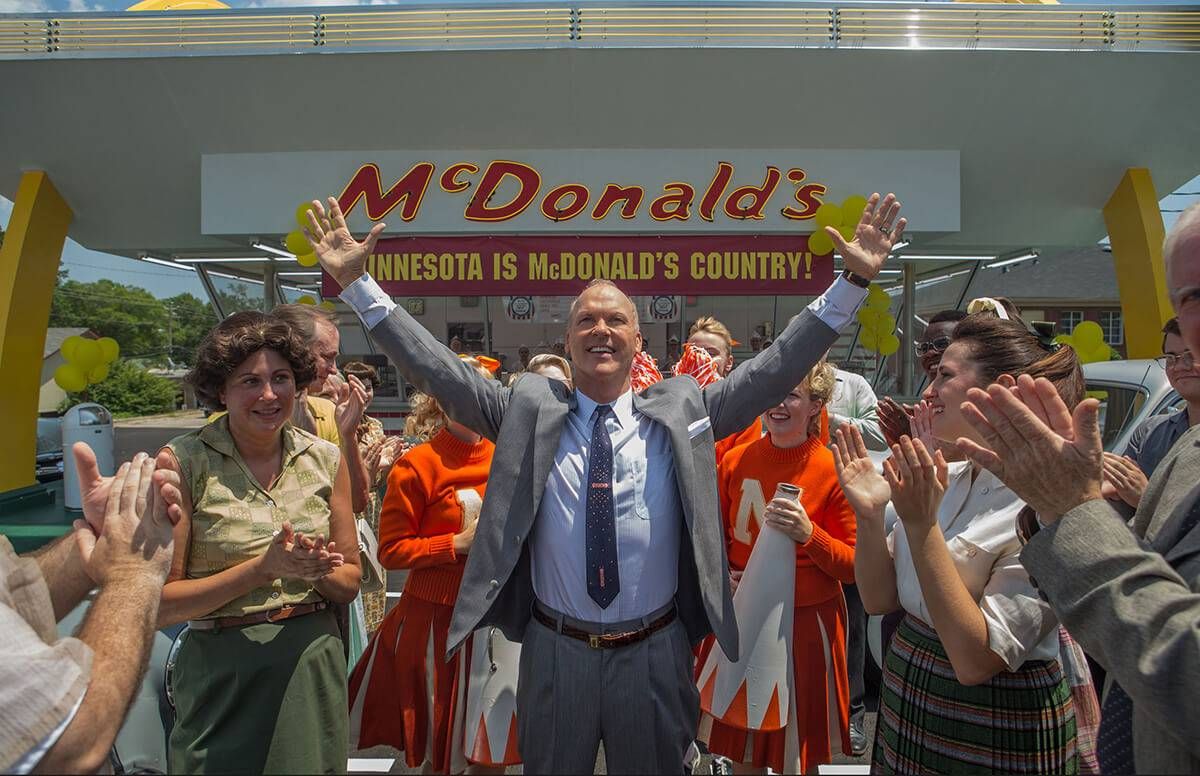5 Entrepreneurship Myths 'The Founder' Destroys
The Schulze School of Entrepreneurship associate dean on the Ray Kroc film
Would the movie The Founder (starring Michael Keaton as Ray Kroc, who turned a burger stand into the colossal McDonald’s franchise) be another disappointing romantic portrayal of Hollywood’s version of entrepreneurship or would it accurately portray the entrepreneurial journey? I was eager to find out.

Going into the theater, my skeptical predisposition was based on too many sensationalistic depictions of entrepreneurship in the media. Too often, the stories focus on a large monetary harvest, ignoring other non-monetary milestones of success. In truth, monetary windfalls are rare for entrepreneurs. In fact, some studies have shown that entrepreneurs underperform non-entrepreneurs in terms of career earnings..
So would The Founder be disappointing, lack any resemblance to reality and provide few substantive entrepreneurial lessons, if any? No! In fact, the film provides dozens of real-life entrepreneurial lessons, while dispelling numerous erroneous entrepreneurship myths. I’ll offer five myths the movie appropriately destroys:
Myth 1: An Entrepreneur Is a Lone Wolf
If the stories of Steve Jobs/Steve Wozniak and Bill Gates/Paul Allen are not succinctly convincing, Ray Kroc’s most certainly is! As The Founder made clear, entrepreneurs need partners in abundance: formal, informal, friends, colleagues, suppliers, financiers…the list is endless.
Moreover, entrepreneurs need close partners with shared vision and gap-filling skills. Kroc’s success could not have been actualized without the McDonald brothers, his financial backers, his handpicked franchisees and dozens of others.
Do not believe you can start a successful business alone. That does not happen. Good entrepreneurs surround themselves with good people.
Myth 2: Entrepreneurs Are Young
While statistics might indicate that entrepreneurs are young on average, there are always outliers — like Kroc. Although he recognized the McDonald’s opportunity later in life, Ray Kroc was always an entrepreneur…just not a well-known one.
These days, there is a renaissance of entrepreneurship among retirees. While this might not skew the data about the age of entrepreneurs near-term, it is likely to do so over the next 10 years. It is never too late to pursue your passion and start a business after 50 or beyond.
Myth 3: Good Businesses Scale Easily
Many launches begin as lifestyle businesses bootstrapped with personal, family and friends’ money. But even startups with inherent high-growth potential find scaling to be challenging. Even given no constraints on typical scale limitations such as cash flow, personnel or competitive landscape, there is still the issue of culture.
While most leaders stand steadfastly defending and protecting corporate culture, all businesses mature. All businesses evolve. To maintain relevancy and continued growth, a company’s culture will change.
One of the great lessons from The Founder is this notion of culture, flexibility, pivoting and scale. As Kroc proved by transforming the McDonalds’ tiny business and franchising it across the nation, rigid adherence to founding notions can thwart growth.
Myth 4: Entrepreneurs Live a Glamorous Lifestyle
No, most entrepreneurs do not live a glamorous lifestyle; if they do, their investors should cringe. Entrepreneurs are notoriously frugal, hard working and opportunity-obsessed with little time for outside activities. These qualities are not hallmarks of the glamorous life.
Ray Kroc embodied all the classic entrepreneur’s qualities and, although a self-promoter, largely avoided falling into any glamour traps (the film shows him living in the same suburban home even as the company grew enormously). Likewise, the McDonald brothers certainly showed no signs of glamorous lifestyles. All three entrepreneurs were obsessed with the business, putting in very long hours and tending to all aspects of running things — down to cleaning the trash.
Certainly, there are often good times along the entrepreneurial journey, but there are frequently many hardships as well. The Founder does not shy away from showing the true, non-glamorous aspects of entrepreneurship.
Myth 5: Successful Entrepreneurs Have Luck on Their Side
In truth, as Louis Pasteur was quoted as saying, “chance favors the prepared mind.” Entrepreneurs do not get lucky. They are steadfastly persistent and doggedly obsessed with opportunity. In The Founder, these qualities are clear in Ray Kroc as well as the McDonald brothers.
Some entrepreneurs will say they got lucky, however that is humility speaking. They prefer not to talk about all the long, difficult hours along the path of their journey. They will seldom talk about mortgaging their house to make payroll, and if they do, they can’t properly translate to a non-entrepreneur how that felt.
Watching The Founder, some viewers may find Ray Kroc somewhat villainous. Some may believe he took advantage of the McDonald brothers. There is another viewpoint: Ray Kroc was forced to become creative and aggressive to achieve the McDonalds’ shared vision.
Businesses grow, mature and change over time. As The Founder shows, blind adherence to inflexible systems and business agreements are not typically supportive of scaling a business. Businesses need to be dynamic. Provided there is a solid foundation of primary and secondary research supporting business model alteration, failure to morph with the dynamics of market fluctuations and shifting forces is certain to introduce avoidable risk. My business school mentor used to say: “Thought without action is frivolous, but action without thought is dangerous.” These truly are words of wisdom.
Some of the subtler points from the movie support my personal beliefs as an entrepreneur. These beliefs are also well documented in the academic literature and ingrained in my memory from first-hand experience. Entrepreneurs evaluate and mitigate risk. Entrepreneurs are comfortable with ambiguity. Entrepreneurs are passionate and have a strong locus of control. These are all visible in The Founder.
No, The Founder is not a romanticized view of entrepreneurship. It provides audiences with many real-life lessons unvarnished. Bravo to Hollywood for making a film the entrepreneurship community — practitioners and academics alike — can point to with a level of authenticity.


